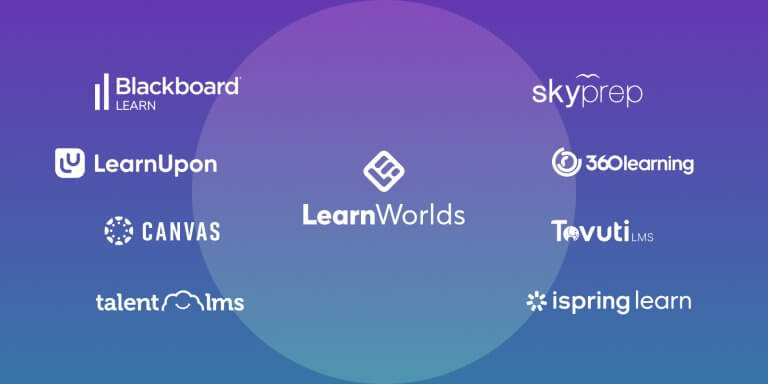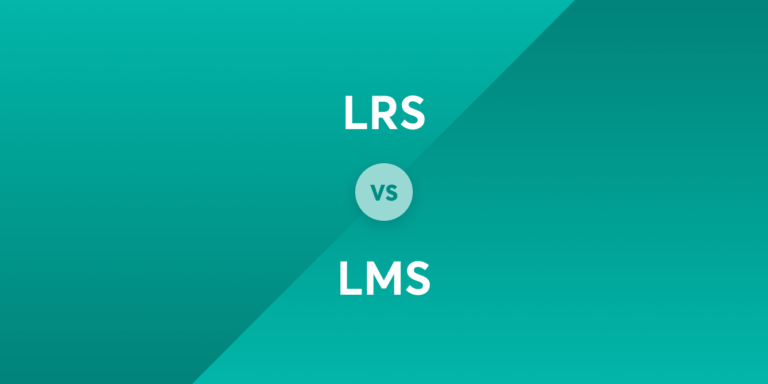Table of Contents
Looking for a vibrant ecommerce community you can join? You’ve landed at the right place.
In this article, that’s what we’ll be talking about.
Before we dive deeper, here’s a quick look at the best ecommerce communities for 2025 and what makes each one stand out. Each group is an excellent resource for entrepreneurs looking to grow their business in the ecommerce industry.
If that’s you, we recommend that you keep reading.
What are ecommerce communities?
By 2029, more than 3.6 billion people are expected to shop online. That’s nearly half the population, and it says a lot about where the world is headed. More shoppers mean more opportunity for sellers like you, but it also means more competition, more platforms, more tools to figure out, and a lot more noise.
Trying to keep up can be tough, but that’s where online ecommerce communities come in.
These are spaces—some big, some small—where sellers connect to swap tips and work through the challenges of running an online business. Some are open to anyone, others are invite-only.
You’ll find a wide range of participants in these communities, including other entrepreneurs and ecommerce business owners, and like-minded individuals from all different stages and backgrounds in ecommerce.
These communities show up in different forms, including:
No matter the setup, the idea is the same: learn from people who are doing what you’re doing. Maybe even a few steps ahead. You’ll get feedback, real-world examples, and a place to ask the questions that don’t always have a clear answer.
And if you’re serious about growing your store—or just want to stop figuring everything out the hard way, why not join a group that’s already having those conversations?
Why the value of community in ecommerce is growing
The problems you face as an online seller today are more complex than they were even a few years ago. Ads cost more. Customers expect more. Platforms change constantly, sometimes with little notice. And then there’s tool fatigue—42.28% of ecommerce professionals juggle at least six ecommerce apps daily for email, analytics, support, and everything in between.
When you’re dealing with that kind of pressure, it helps to have people you can talk to. Not just for quick answers, but to stay current. The most useful information isn’t just coming from help docs or webinars anymore, but from other sellers working through your same issues.
The value of community in ecommerce shows in how it has quickly become one of the most practical ways to make smart decisions as your business grows.
Why should you join an online business community for ecommerce owners?
A good ecommerce support community gives you access to real conversations about what’s working and what’s not. When you’re in a rut, you have people to go to for tips on how to move forward with less trial and error.
Here are just a few ways joining an online ecommerce business community can support you.
Get real-world insights and practical tips
YouTube tutorials and webinars can be helpful, but they’re usually one-size-fits-all. In an online community, you can ask about your specific situation and get feedback from ecommerce experts who have tested similar ideas.
By discussing specific ecommerce topics, you can gain insights and receive targeted feedback that is directly relevant to your needs. Say you’re unsure whether to switch email platforms. You can post your current setup and hear from others who’ve made the switch and can provide valuable insights on what to expect.
Stay ahead with the latest trends
By the time you hear about a shift in Meta’s ad targeting or a new Shopify checkout change in a newsletter, someone in your online community has probably already mentioned it and started testing workarounds. These conversations are often the first place sellers spot what’s changing in online selling networks.
Through active knowledge sharing within the online community, members can find inspiration for new strategies and stay ahead of emerging trends.
Solve problems with community help
Let’s say your email flows suddenly stop firing or your conversion rate drops overnight. Before you submit a support ticket or tear apart your tech stack, you can post a question in the official online forum, where users actively help each other find answers to common issues. One user in Ecommerce Fuel said:
“I posted the problem on the forums and within minutes we had dozens of knowledgeable suggestions which helped us fix the problem.”
Connect with like-minded entrepreneurs
You might be the only one in your circle running an online business, but you’re not alone. Joining an online group allows you to connect with others who understand your challenges and can help you build relationships.
In an online community, you’re surrounded by people who also stayed up late fixing pixel issues or wrestling with inventory delays. These conversations go beyond advice to make the work feel less isolated.
Stay motivated and inspired
It’s easier to keep going when you’re seeing fellow entrepreneurs push through similar issues and sharing their journeys. Someone shares that their product flopped and what they’re trying next. Someone else celebrates their first 100 orders. Being around that kind of energy helps you keep your head in the game when growth feels slow.
E-commerce group vs. e-commerce forum: What’s best for you?
Deciding between joining an ecommerce group or an ecommerce forum? It helps to understand how they work and what kind of interaction they offer.
Both are types of online business communities, but they serve different purposes depending on how you want to connect and learn.
Choosing a community provider ecommerce businesses trust
Not every group lives up to its member count. Before you jump in, scan recent posts—are people sharing real results or just plugging products? A healthy online community has active moderators who steer conversations away from community marketing for ecommerce products and towards helpful content for sellers.
Look for discussion topics that match your stage and goals. Are there threads on the exact challenges you face, whether it’s scaling ad spend or streamlining shipping? Some communities might even sell digital downloads or offer perks like live calls or resource libraries, which can make paid memberships worth it.
Also, check if the online community has clear rules and a defined purpose. A large member count doesn’t always mean value. Sometimes, smaller, focused groups can deliver more meaningful connections.
And if you’d rather create your own space, there are platforms designed to help you build and manage an online community. These tools support everything from community management best practices to selling digital products or courses.
💡Want more? Check out our deep dive on 8 types of online communities examples & tips on how to build yours
15 ecommerce communities to join in 2025
Below you will find a list of the 15 best ecommerce communities you can join to learn more about what interests you the most.
Whether that’s getting some more frequent ecommerce news, or known-to-work ecommerce strategies, or simply meeting other ecommerce enthusiasts, we’re sure you are going to find just what you need.
1. Grow Social Club
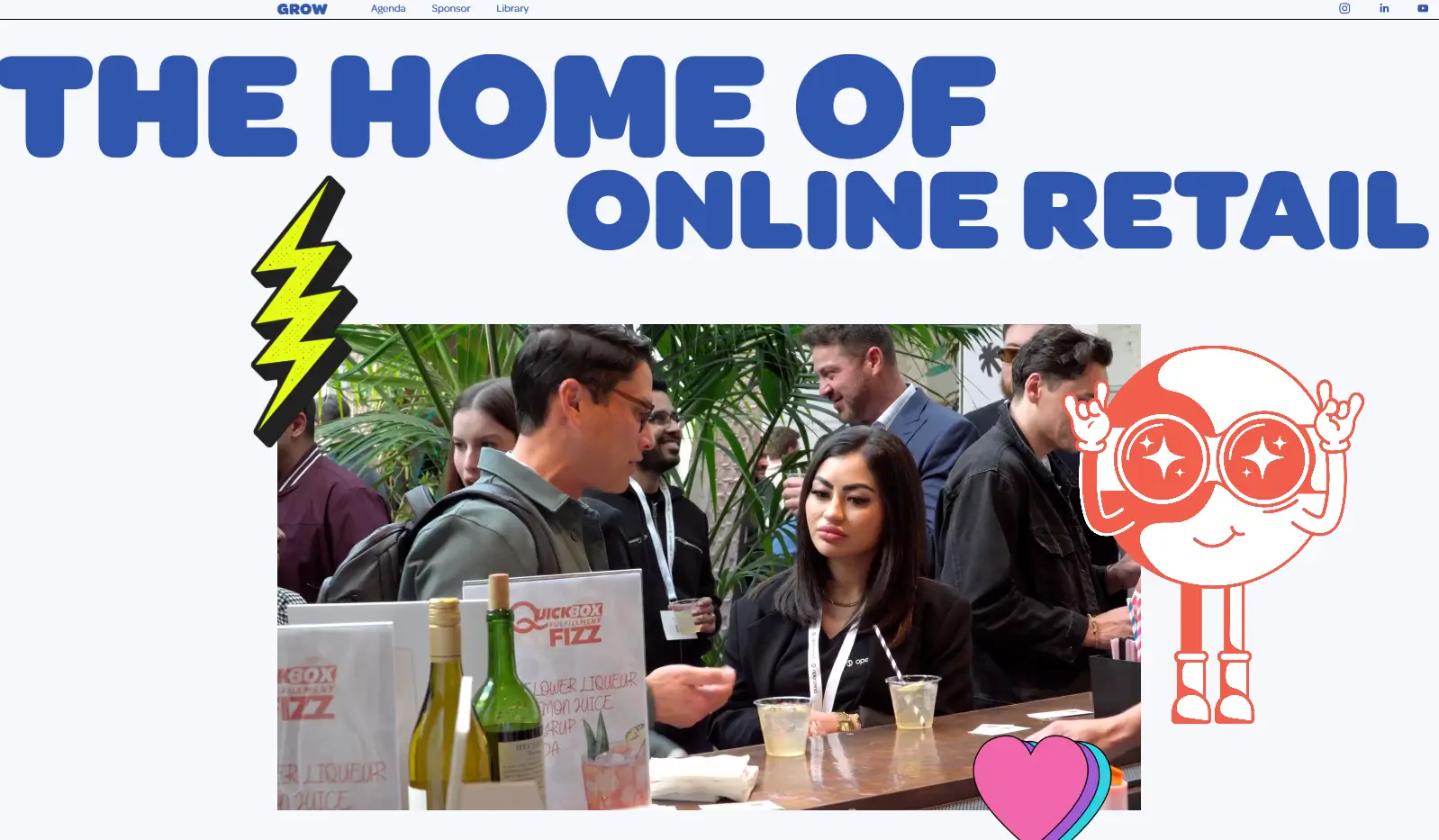
Grow Social Club is an in-person community in New York and West Hollywood where members can meet and socialize through co-working and curated ecommerce networking groups. Members get a weekly newsletter and access to a private Slack channel to keep the conversation going between in-person meetups.
Who it’s for: 7- to 9-figure online store founders
Is it exclusive? Yes
Paid or Free? Paid
2. Ecommerce Elites Mastermind
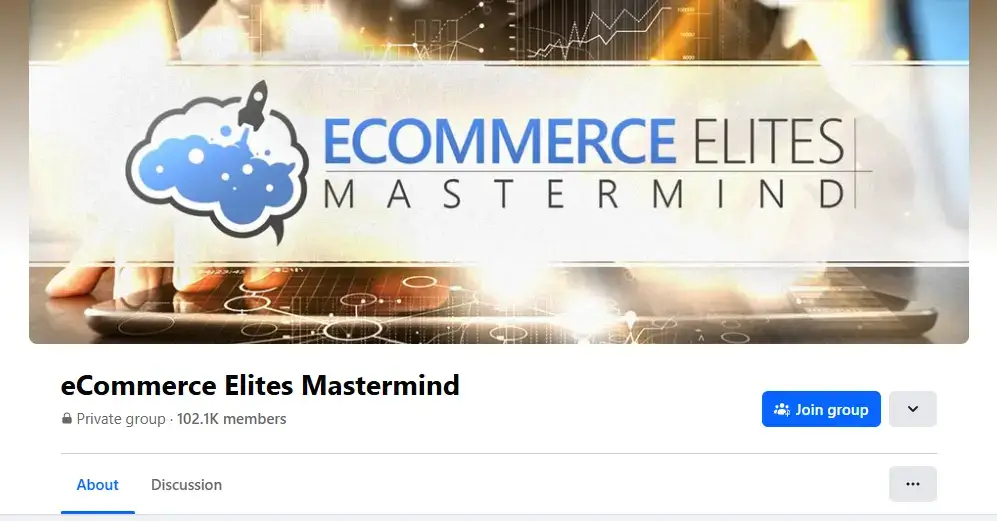
Ecommerce Elites Mastermind is a huge—over 102.1K members—Facebook ecommerce community. It’s a private digital vendor collective, so you need to request access to join, where direct-to-consumer (DTC) sellers share their tips and tactics for running ecommerce businesses.
Who it’s for: Direct-to-consumer brands
Is it exclusive? No, but you do need to request to join and be approved
Paid or Free? Free
3. DigitalMarketer Engage
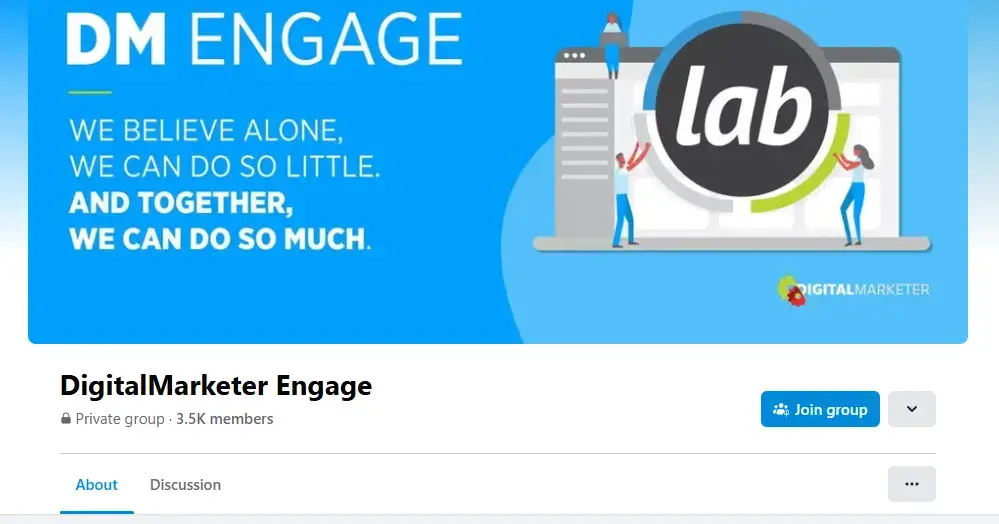
For DigitalMarketer Lab members, DigitalMarketer Engage is the community that brings them together. Also hosted via Facebook, this is a private group where members can get answers to their digital marketing questions and tips for growing their online business.
Who it’s for: Ecommerce marketers and operators
Is it exclusive? No, but you must be a DigitalMarketer Lab member
Paid or Free? Paid, but there is a free trial, so you can try before you buy
4. Woo Community
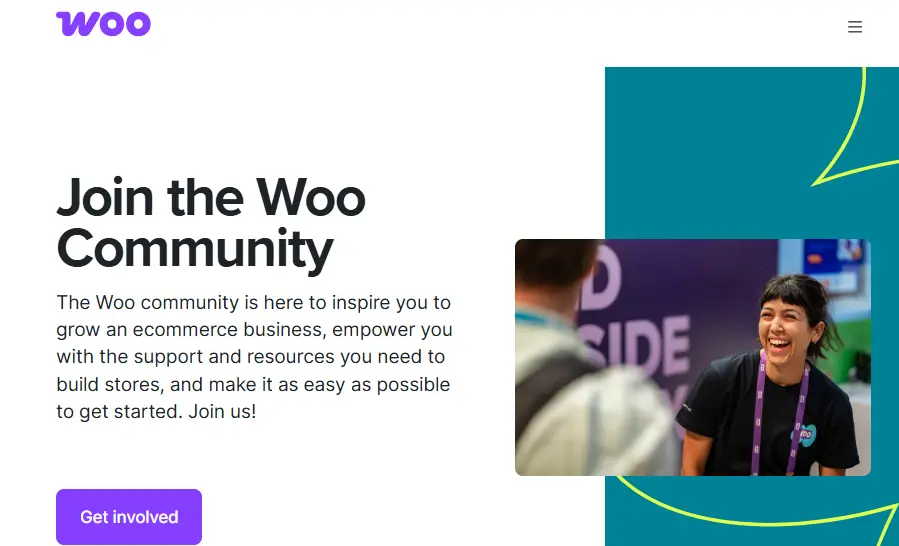
Woo Community spans a public Slack workspace, a GitHub community, and the occasional local meetups. On Slack, you’ll find channels for storefront questions, plugin recommendations, and live troubleshooting. On GitHub, you can report issues, follow development updates, and contribute to extensions.
Who it’s for: WooCommerce store owners
Is it exclusive? No
Paid or Free? Free
5. Workspace6
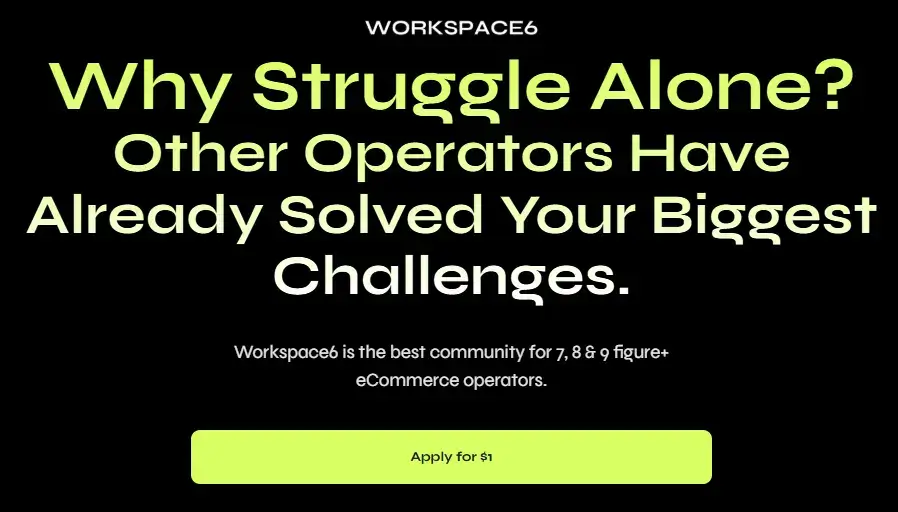
Workspace6 is an exclusive forum with 900+ members. Here, 7- to 8-figure operators dig into supplier deals and scaling tactics. It’s an online entrepreneur network where each month, a peer-led “Deep Dive” workshop explores one topic in detail, complete with step-by-step playbooks and case studies from members who have hands-on experience.
Who it’s for: 7, 8, and 9 figure+ ecommerce operators
Is it exclusive? Yes
Paid or Free? Paid
6. Ecommerce Fuel Forum
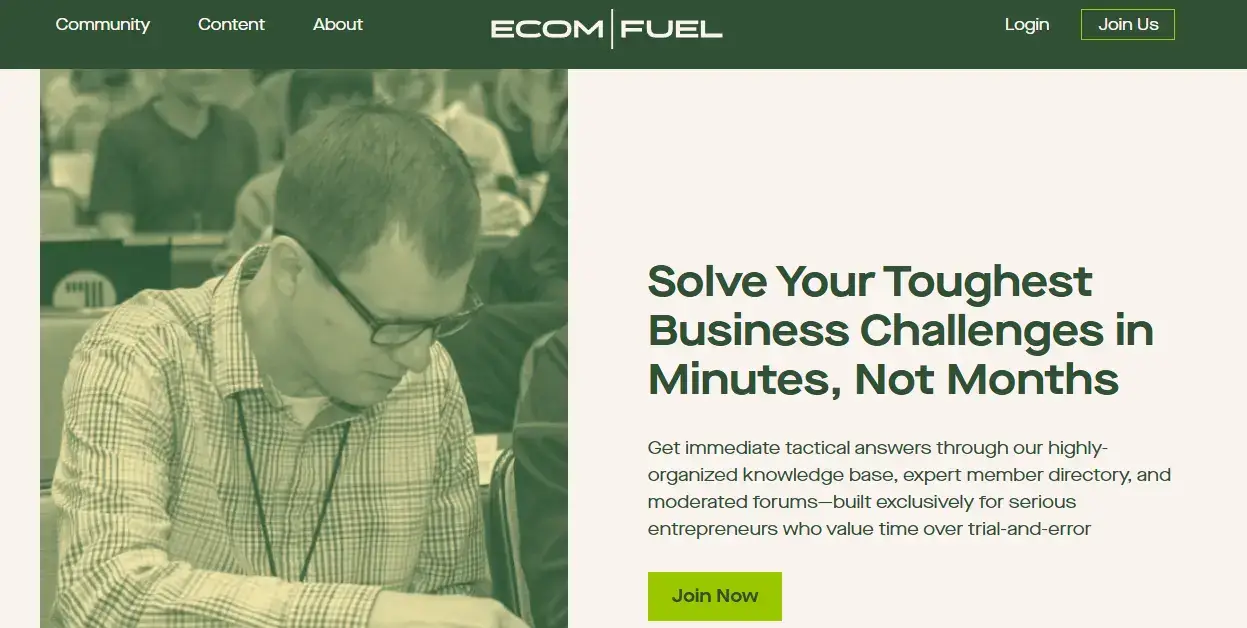
Ecommerce Fuel Forum brings together 7-figure store owners on its community website for ecommerce professionals to swap honest experiences and behind-the-scenes growth stories. Its “Deal Exchange” board is loaded with vetted partner discounts, and it has quarterly live meetups to keep members engaged and accountable.
Who it’s for: Established store owners (>$250K/yr)
Is it exclusive? Yes
Paid or Free? Paid
7. Ecommerce Marketing School
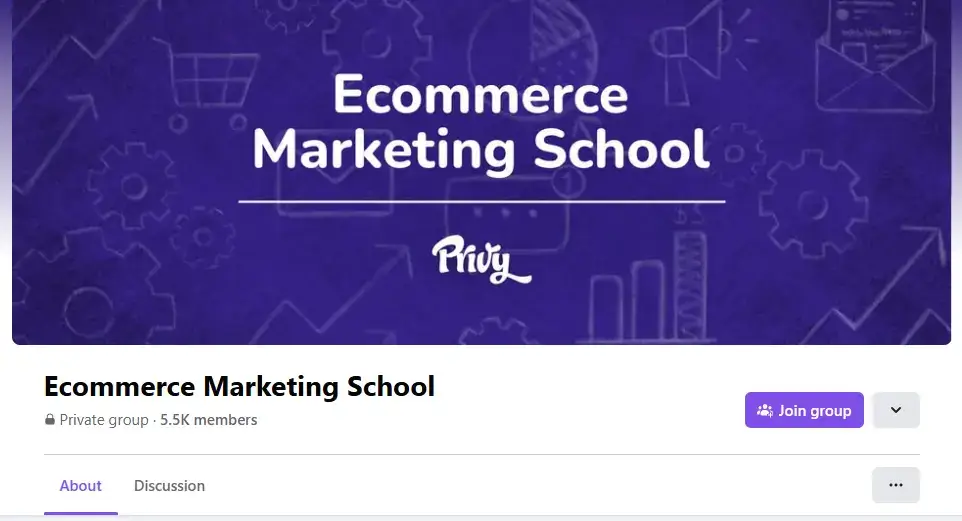
Ecommerce Marketing School is a free Facebook group run by Privy (Val Geisler) where sellers share everything from email flows to ad strategies. You’ll find weekly live Q&As posted in the feed, downloadable swipe-file links, and peer critiques on your latest campaigns. They also publish a companion podcast you can subscribe to for deeper dives.
Who it’s for: Sellers wanting practical, peer-based marketing advice
Is it exclusive? No, but the Facebook community is private so you need to request to join
Paid or Free? Free
8. The Growth Partners Community
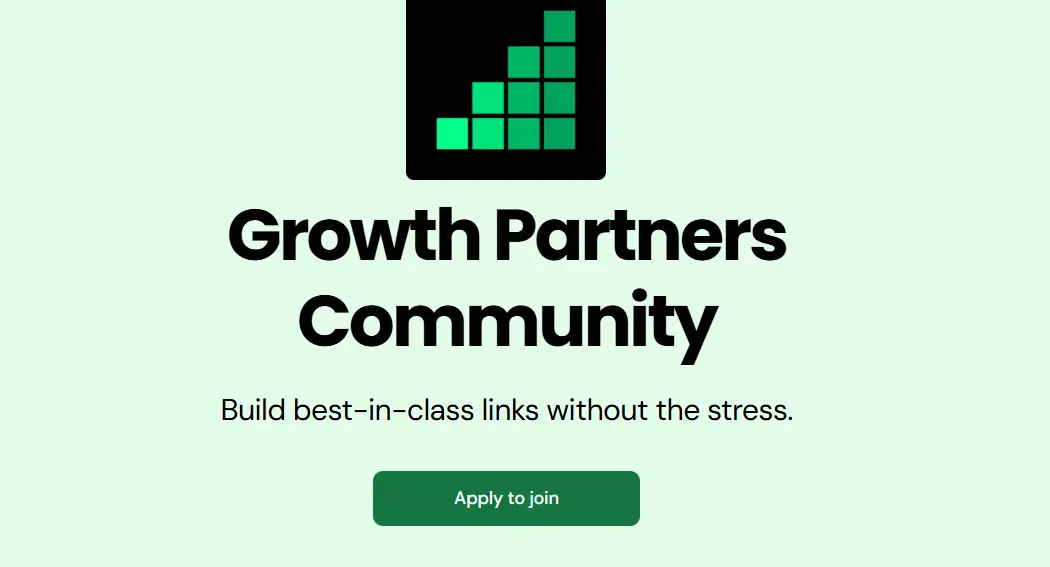
The Growth Partners Community is unique on this list in that it’s a private network of high-growth brands working together on crowd-powered link building. Members share guest-post opportunities, earn credits through a “give what you get” quota system, and track every placement in a focused dashboard.
Who it’s for: Ecommerce businesses focused on SEO and quality backlink partnerships
Is it exclusive? Yes
Paid or Free? Free tier available, but paid subscription unlocks additional link placements and premium opportunities
9. Shopify Community
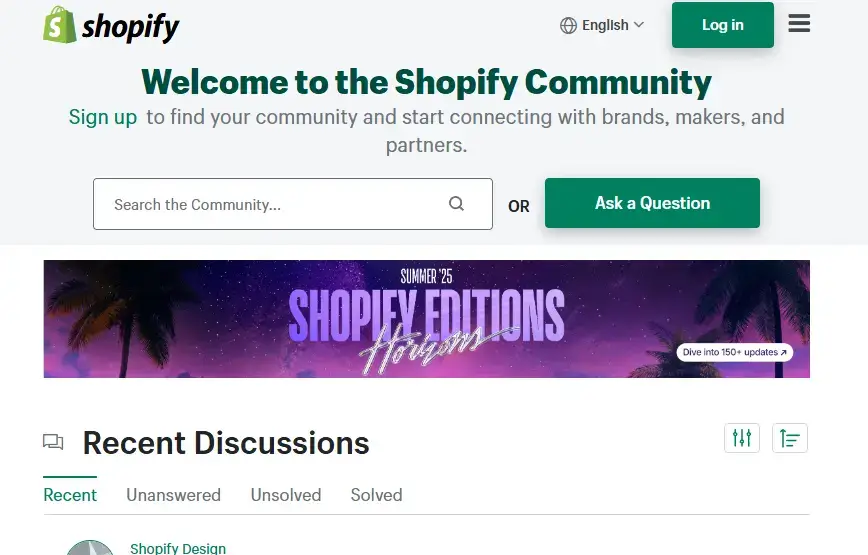
Shopify Community is the official forum where merchants and partners troubleshoot issues and share successes. In the “Expert Corner,” verified Shopify Partners answer complex setup questions and share video walk-throughs of solutions. The platform also features member-run subgroups for niche topics, so you can get involved directly and manage your own threads.
Who it’s for: All Shopify store owners
Is it exclusive? No
Paid or Free? Free
10. The Founder’s Club
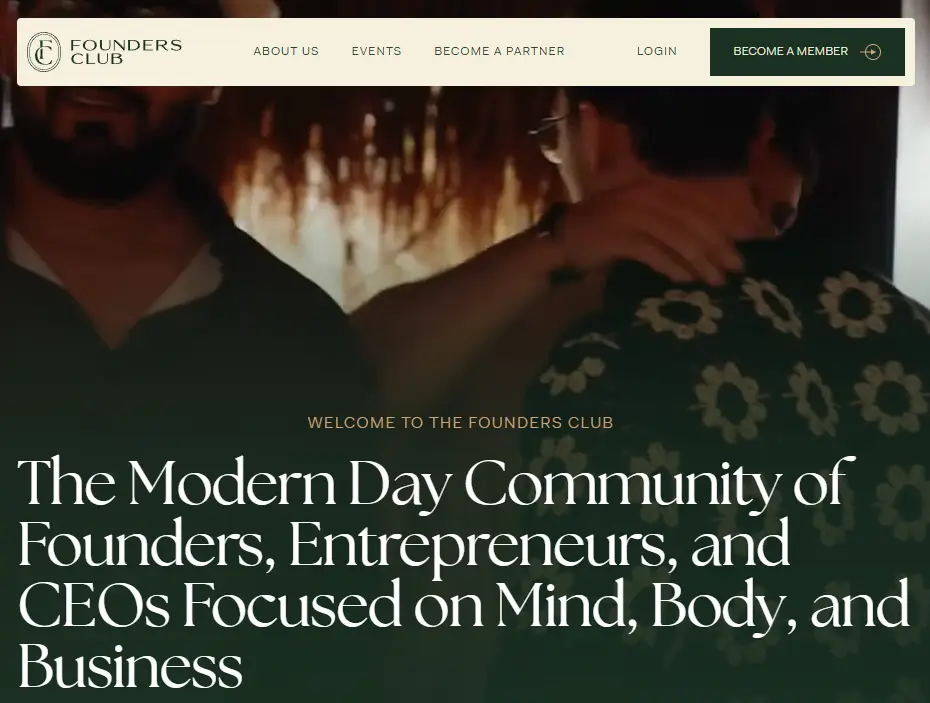
The Founder’s Club is a private network where DTC entrepreneurs and investors can discuss funding, partnerships, and customer retention. It has “Investor Office Hours”, which lets you pitch ideas to angel investors and venture capitalists (VCs) in a small-group setting. On top of peer workshops, members get quarterly deep dives on emerging retail trends and capital-raising tactics.
Who it’s for: DTC founders and backers
Is it exclusive? Yes
Paid or Free? Paid
11. Titan Network
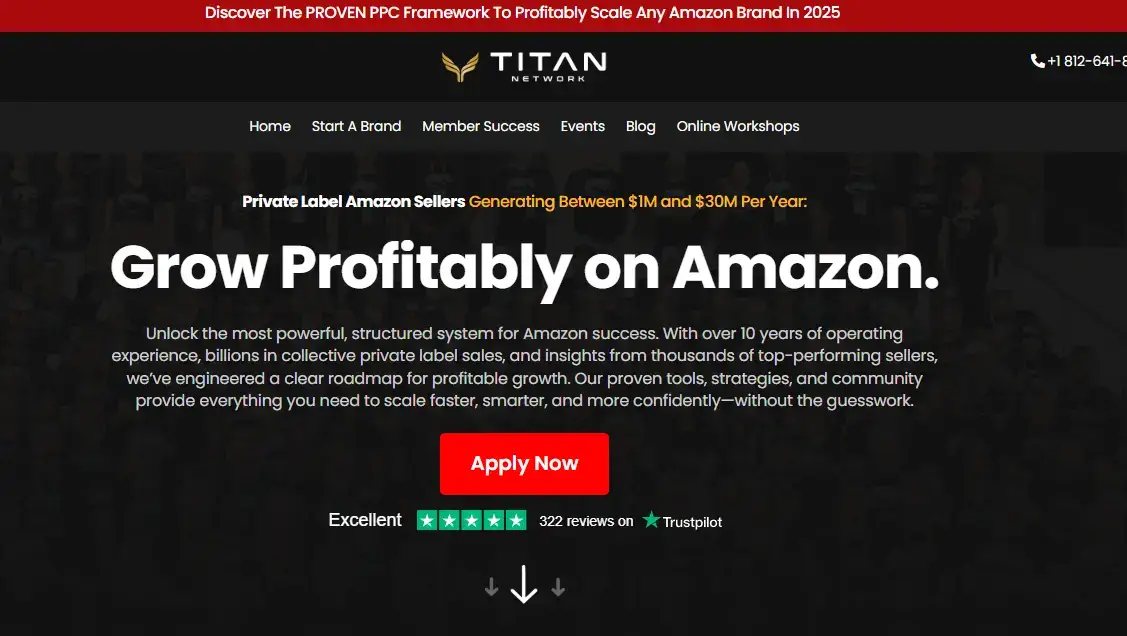
Titan Network is an invitation-only mastermind community of private-label Amazon sellers generating $1 million to $30 million annually. Members get access to the TitanOS playbook, weekly huddles, and bi-weekly masterclasses on Amazon growth strategies. They can also connect at in-person meetups and virtual roundtables tailored to every stage of the Amazon seller’s ecommerce business.
Who it’s for: Mid- to high-revenue Amazon FBA sellers
Is it exclusive? Yes, application required
Paid or Free? Paid
12. Amazon FBA Sellers & Community
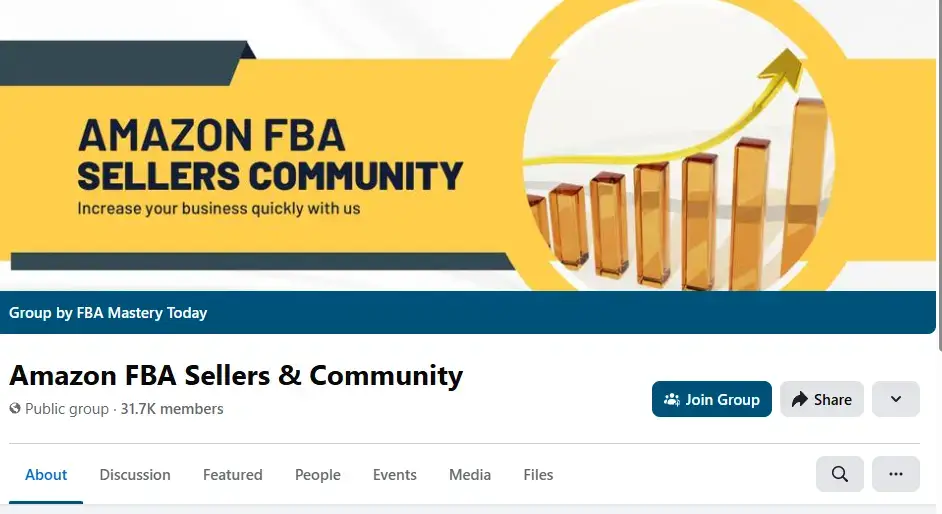
Amazon FBA Sellers & Community is a public Facebook group where you can go to swap things like sourcing ideas and FBA policy updates with other community-based online sellers. It’s a highly active community, with new posts daily and over 31K members. If you have questions about selling on Amazon and ecommerce in general, it’s a great place to start.
Who it’s for: Amazon third-party sellers and other ecommerce professionals
Is it exclusive? No
Paid or Free? Free
13. The Conference Room: A Private Mentorship Group

The Conference Room is a private mentorship group for Amazon sellers offering lifetime access for a one-time $329 fee. You’ll find 700+ peers sharing profitable product alerts, Amazon ungating instructions, plus two in-depth guides on Textbook Flipping and LEGO Investing at no extra cost. It’s a more niche community, but if it fits your niche, it could be just what you need.
Who it’s for: Solo entrepreneurs launching or growing a high-margin Amazon FBA business
Is it exclusive? No
Paid or Free? Paid (one-time fee, lifetime access)
14. BigCommerce Forums
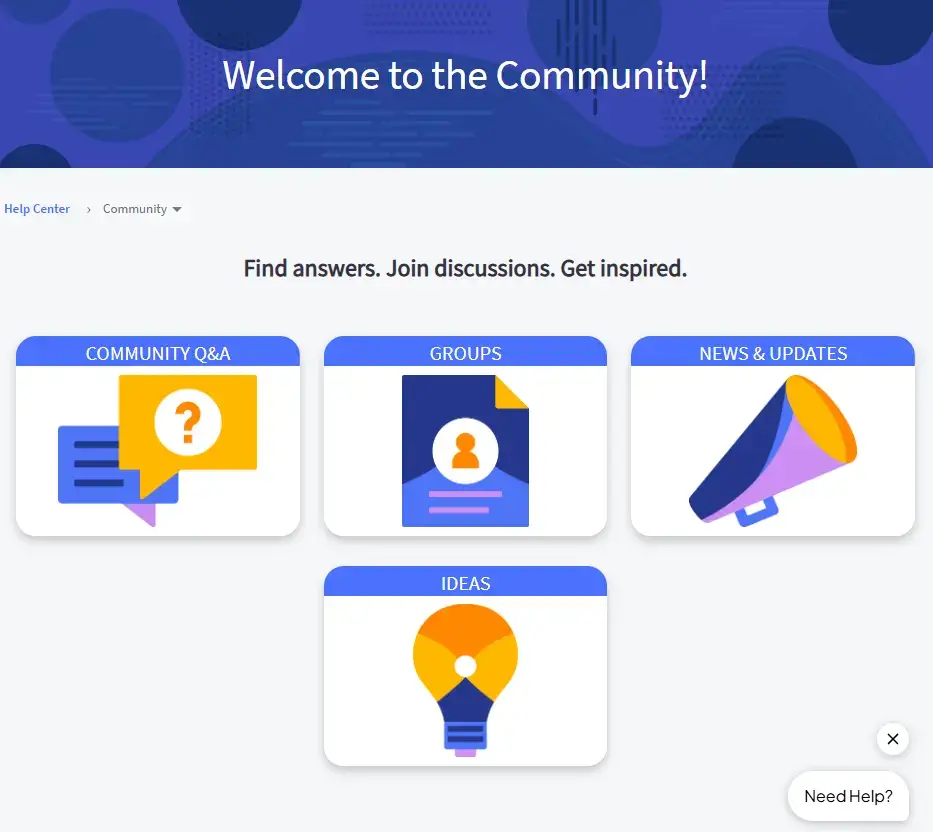
BigCommerce Forums is the official help center community for BigCommerce store owners where merchants and partners ask questions and share store-building tips. You’ll have access to the latest product news, integration advice, and practical how-to articles from both BigCommerce staff and seasoned store owners.
Who it’s for: BigCommerce store owners and development partners
Is it exclusive? No
Paid or Free? Free
15. Startup CPG
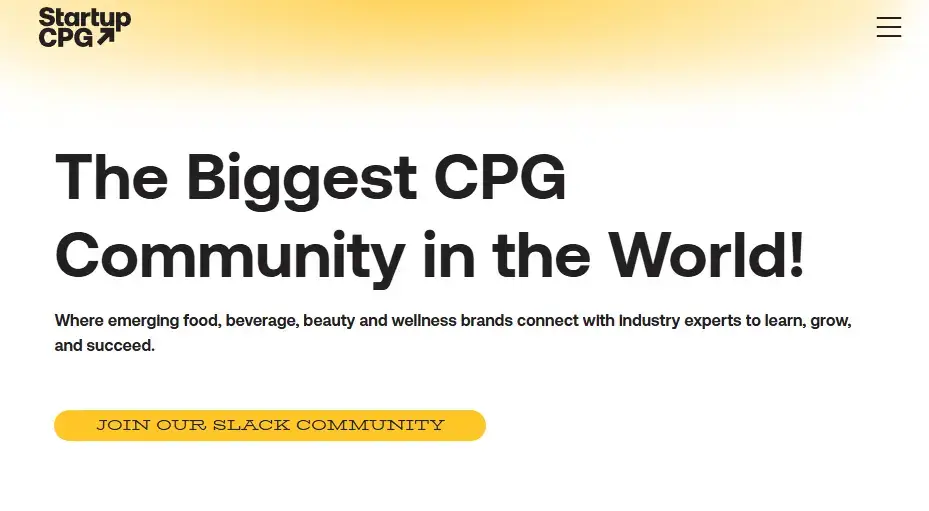
Startup CPG brings together early-stage consumer packaged goods (CPG) founders. Monthly “Shelf Ready” workshops offer in-depth feedback on things like your packaging design and pricing models, and can steer you toward the right retail partnerships. The group also runs a paid Slack channel for spot consultations on product formulations and label compliance.
Who it’s for: Early-stage CPG ecommerce professionals and founders
Is it exclusive? No
Paid or Free? Free & paid tiers
How to thrive inside a community ecommerce space
It’s okay to lurk for a bit while you decide if a community is right for you, especially if it’s one with a free trial or open membership. But once you join, active participation will get you the most value.
Start by introducing yourself. Tell people your niche and challenges so they know how to help. When you hit a snag, ask focused questions and include details about your setup. Clear examples will lead to better advice.
Don’t just share your struggles, share your wins and what you’re learning too. We live in a knowledge economy, so if you have something helpful to share, don’t be shy. Chances are, you aren’t the only one who finds it useful.
Matthew Goulart, Founder at Ignite Digital
Knowledge sharing is at the heart of thriving communities. Actively share ideas, resources, and feedback with others to help everyone grow. This collaborative approach benefits both you and the group.
And make sure to follow the group’s guidelines. Some forums and communities have rules about pitching your product or services, and some don’t. Know what is and isn’t allowed and make sure you stick to it. If you aren’t sure, moderators and other group members can usually help.
Here’s a quick recap on what you can do to get the best of the community:
Oh, and live events can be a great way to get more deeply involved. Attend them when you can, and maybe even offer to host one if the group allows.
LearnWorlds: The online business community platform for creators
Maybe you looked at every single community on this list and thought, “Hey, I’d rather make my own online ecommerce community.” Well, you can, and an ecommerce software and platform like LearnWorlds can do the heavy lifting.
With LearnWorlds, you get:
Building your own community lets you control the conversation and bring together the exact peers you want to learn from. Your online group can attract engaged users and community members, becoming a hub for ecommerce knowledge sharing and networking.
And who knows? It could even become a revenue stream down the road if you make it exclusive and offer premium resources like courses or workshops.
Ready to make your community? Try out LearnWorlds today with a free trial.

Ciera Lamb
Ciera is a freelance content writer and editor connecting companies with their ideal audiences through blog articles and other online content. She approaches her writing with curiosity and research and enjoys the ever-present learning that comes with being a content writer. She is also an avid scuba diver, an aspiring Dutch speaker, and lover of all things nature.
FAQ
Everything you have ever wondered, but were too afraid to ask...



